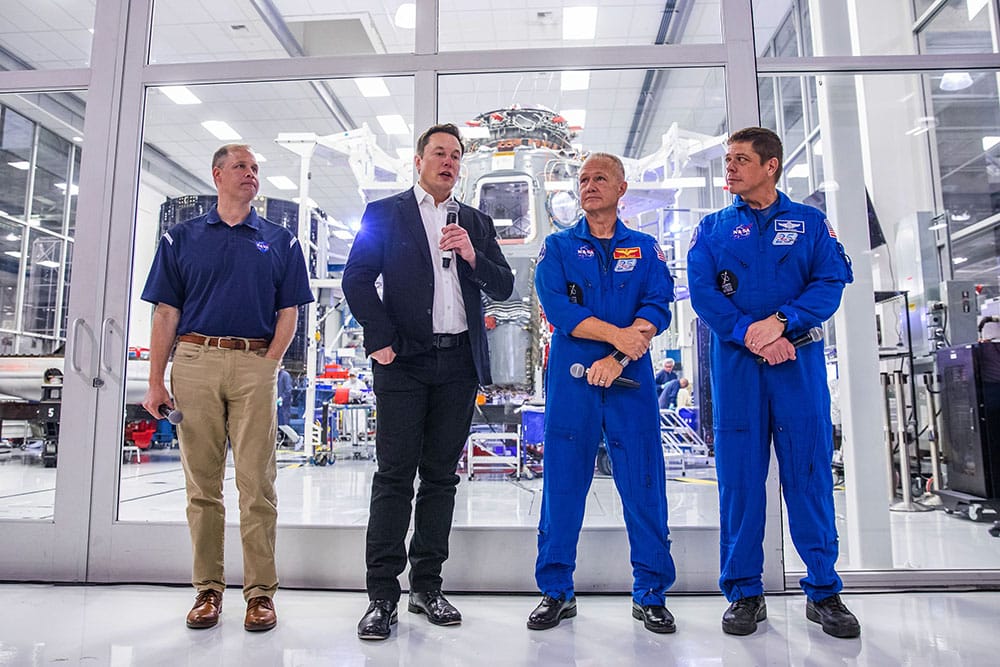The 20th-century space race between the United States and the Soviet Union was one of the most monumental chapters in human history, materially seeing Neil Armstrong take his first steps on the Moon in 1969. Fast forward to the 21st century, however, and this is all different. Whereas previously it was governments alone that were players in the cosmos, private companies are now leading the charge and changing the way in which humanity goes beyond Earth. This new space race promises innovation, collaboration, and challenges that might just redefine our relationship with the universe

Private Space Companies on the Rise
The early 2000s saw the serious advent of private companies in space, led actively by SpaceX. SpaceX was founded in 2002 by Elon Musk with the aim of making humanity a multi-planetary species by reducing space transportation costs. Since then, it has achieved many firsts, such as being the first privately funded spacecraft to reach orbit and leading the way in reusable rocket technology, setting a platform for other players like Blue Origin, Virgin Galactic, and Rocket Lab.
These companies are changing not only technologies but also democratizing space as a feasible domain for private enterprise. The shift from state-driven initiatives to private innovation is a paradigmatic shift with far-reaching implications.
Key Areas of Influence by Private Sector
- Reducing Space Exploration Costs
The biggest contribution by the private companies is that they reduce costs. Indeed, its Falcon 9 reusable rockets have drastically cut the cost of launching payloads into orbit, making space far more accessible than ever. These advancements are crucial for extending space-based research, satellite deployment, even to extended interplanetary explorations. - Space Tourism
Virgin Galactic and Blue Origin achieved media headlines when they flew suborbital tourism flights, providing paying civilians with their first weightless experiences and first views of Earth from space. It is still a luxury today, but the increasing frequency of the flights shows that one day, space tourism may become less expensive and really spur a new wave of public interest in space.
3. Satellite Mega-Constellations
Companies like SpaceX-its Starlink project-and Amazon, with Project Kuiper, are launching thousands of small satellites to create global internet networks. Suppose the constellations succeed in bridging the digital divide by offering high-speed internet to the most far-flung and underserved regions.
- Ambitions for Moon and Mars
But NASA’s Artemis program is-none-the-less heavily dependent on private companies such as SpaceX for logistics and landers in its bid to return humans to the Moon by 2024. More ambitiously, Elon Musk’s long-term vision of a human settlement on Mars using SpaceX’s Starship project makes it possible that private enterprise could dominate an interplanetary human future.
Challenges to Be Overcome in the New Space Race
While the private sector admittedly brings a degree of dynamism into space exploration that’s never been dreamed of, all is not without its hiccups.
- Regulatory Hurdles
Regrettably, the pace of innovation outpaces governments relatively easily. With a host of problems ranging from space traffic management to orbital debris and national security concerns, a powerful regulatory framework is necessary as a radical countermeasure for preventing chaos in Earth’s orbit. - Environmental Impact
Another issue that comes under serious consideration in the present day relates to the environmental impact of rocket launches and satellite constellations. Specifically, rocket exhaust makes up for atmospheric pollution, and the increased number of new satellites raises the chances of collision, thereby adding space debris. - Ethical Considerations The growing dominance of private companies in the space sector brings a host of related equity and ownership questions. Who can extract resources from celestial bodies? How do we ensure space exploration benefits all of humanity rather than being a prerogative of the few privileged?
Collaboration and Competition
The new space race is just not about competition but also about collaboration. Public-private partnerships, like the Commercial Crew Program of NASA, have produced remarkable successes. Meanwhile in both China and India, public national space agencies surge forward meaning that the trajectory of the globe would be defined by cooperation and rivalry in equal parts.
The future of space exploration will likely be private-public partnership balance, as the innovative agility of private companies must find their place alongside the necessary strategic oversight of government agencies. The
Future of Space Exploration

The possibilities are endless, much like the universe itself. With private companies driving technology forward, human civilization is poised to hit some dramatic milestones:
Space Habitats: Something similar to SpaceX’s Mars colonies or the O’Neill cylinders from Blue Origin would be a sustainable environment for living purposes other than Earth.
Asteroid Mining: Companies like Planetary Resources would look to extract valuable minerals from the asteroid, with the potential to transform industries on Earth.
Deep Space Exploration: Missions to the outer planets and beyond could be empowered by private innovation, bringing new discoveries within reach.
Conclusion
The new space race, pioneered by private enterprise, heralds an era of exploration and innovation anew. It might well create more space while responding to emerging imperatives around sustainability and equitability. As humanity tries to reach once more for the stars, it’s collaboration, regulation, and vision that will be needing in order to make this the next frontier to benefit not just a few, but all of humanity. The cosmos no longer belongs to the governments; it belonged to those who grew brave enough to venture into it.





